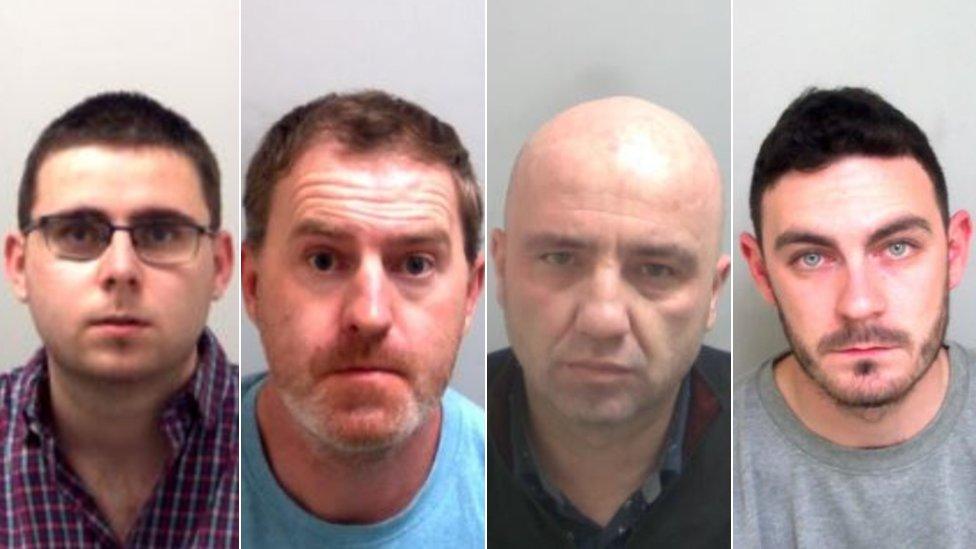Svanic migrants: The audacious crossing that saw a crime gang's downfall
- Published
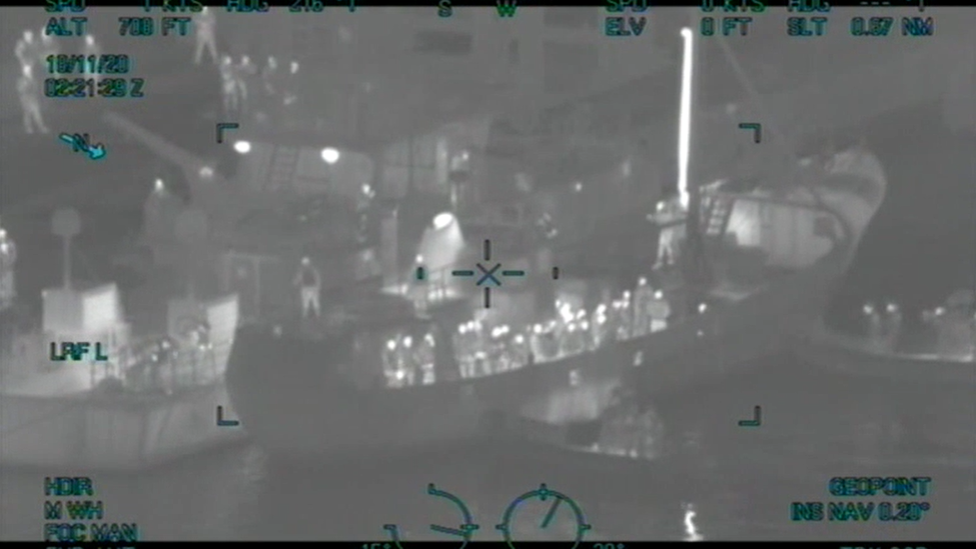
Sixty-nine migrants, including a convicted murderer and a serious drugs offender, were found on board the Svanic
When a dilapidated trawler ran aground in Sweden in late October 2020 it prompted the suspicions of European maritime authorities, who decided to keep an eye on it. It was a clever move: two weeks later the boat was intercepted by Border Force officials who found 69 migrants on board.
On 17 November last year, immigration officials from two Border Force cutters in the North Sea made a startling discovery.
A ramshackle converted fishing boat out of Ostend, Belgium, was approaching the Norfolk coast at Great Yarmouth.
Crammed in the hold were 69 illegal migrants from Albania. Many had been violently sick on the 14-hour crossing.
Among them was a serious drugs offender and a convicted murderer.
All were £15,000 worse off.
For investigators at the National Crime Agency (NCA), the interception of the run-down Svanic represented a more sinister development.
The criminal gang behind this people-smuggling operation had chosen a peculiar route - from Belgium to the East of England - enlisting a larger vessel for what was to be their maiden, and only, voyage.
Migrants had also paid significantly more for this method of crossing than the more familiar journey - by lorry or dinghy - across the English Channel from France, which can cost £2,000 to £4,000.
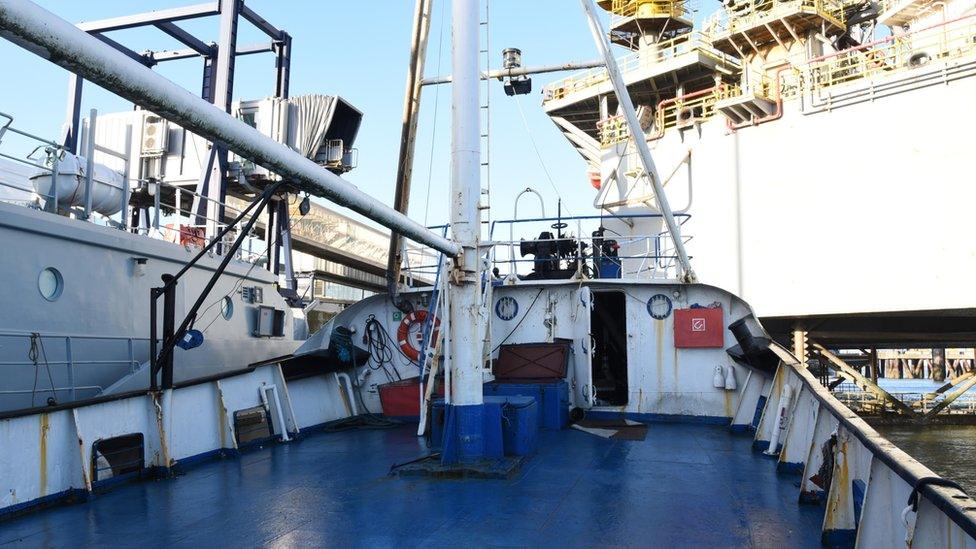
There were only 21 life jackets on the Svanic - but 72 people on board
"We were used to seeing small boats coming from France, which is the shortest route," said Chris Farrimond, deputy director of investigations at the NCA.
"But this came from Ostend into the east coast ports, so a much longer journey, a much larger vessel and a much larger number of migrants on board - therefore a much greater profit for the traffickers.
"From a safety perspective, this vessel was never designed to take that many people; it was not equipped.
"It had one life raft that hadn't been serviced in six years, and 21 life jackets for 72 people on board.
"This vessel would not have been able to cope with a problem at sea."

More stories like this:

In fact, the operation to intercept the Svanic began weeks earlier, when the trawler ran aground off the coast of Sweden after crossing from Latvia.
Swedish authorities searched the 30m (98ft) boat and found nothing. But the route it had taken had aroused suspicions.
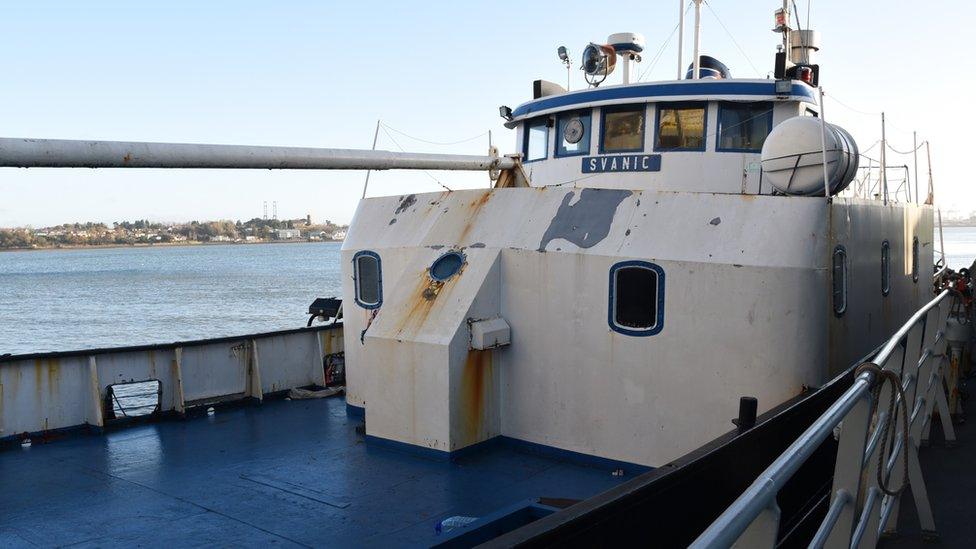
A report was filed with the Lisbon-based Maritime Analysis and Operations Centre (MAOC), a collaborative taskforce which tackles organised drug smuggling across Europe.
Intelligence was then shared with international agencies, including the NCA.
"We became more interested when it set sail from Belgium. It was an unusual routing," Mr Farrimond added.
"They also didn't have a convincing story of why they were doing what they were doing."
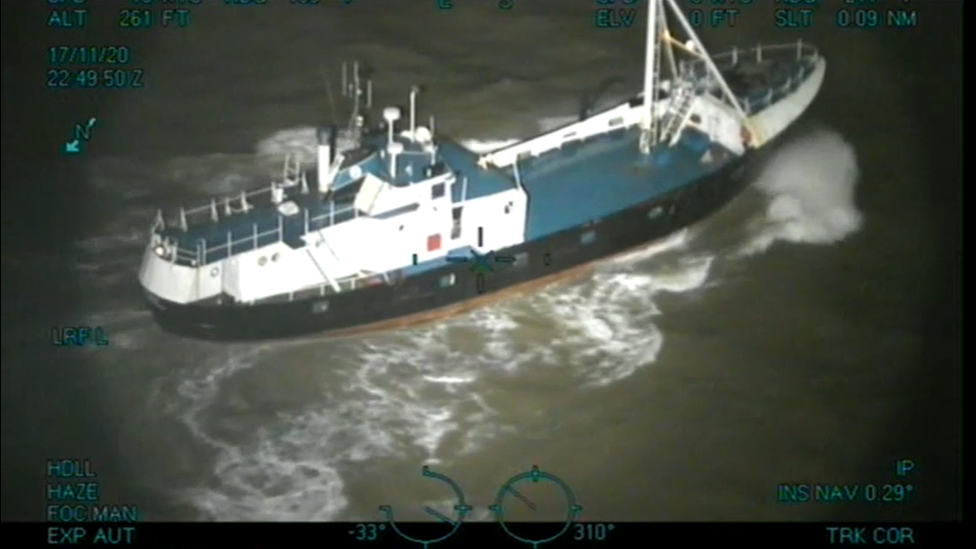
Coastguards spotted the Svanic by helicopter as it approached Great Yarmouth
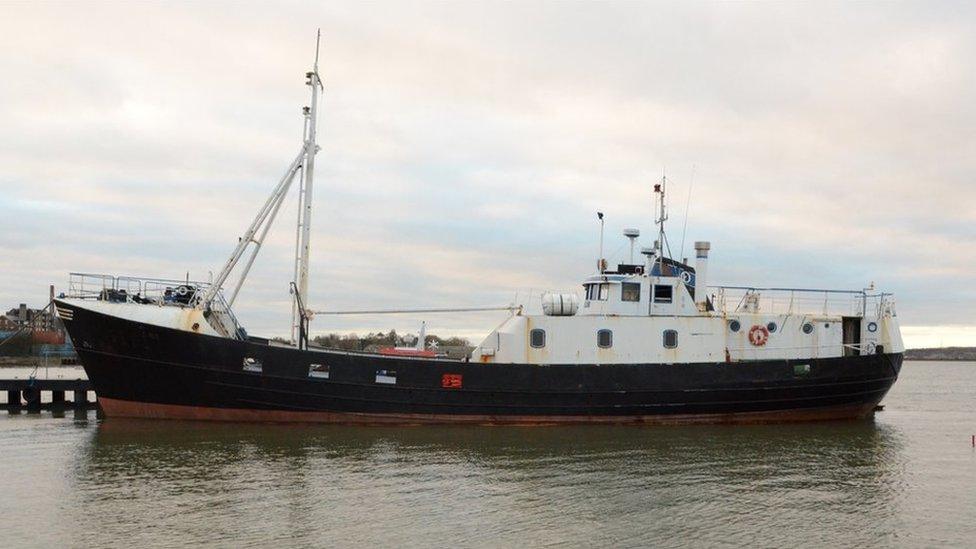
Prosecutors said a "multitude of faults" were found on the boat
Three crew members on board, Ukrainian nationals Igor Kosyi, 56, and Volodymyr Mykhailov, 49, and Latvian Aleksandrs Gulpe, 44, were arrested.
A "shore party" of three other men - Lithuanian Arturas Jusas, 34, Israeli national Kfir Ivgi, 32, and Latvian Sergejs Kuliss, 39, were detained by NCA officers in a series of co-ordinated raids six months later.
They had been identified through a laptop seized on the vessel.
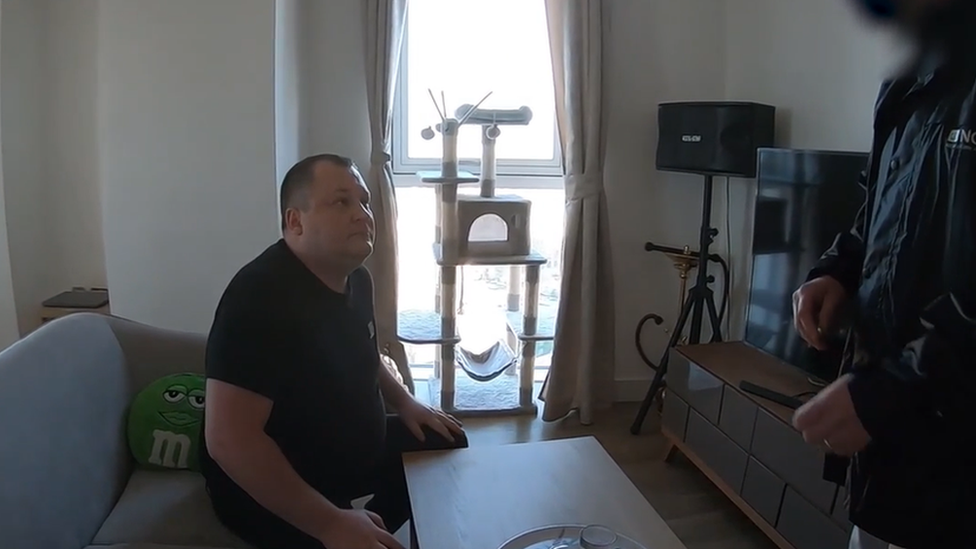
NCA footage shows the arrest of Arturas Jusas at his London home in June
"The NCA's job now was to link these two groups and identify how they had planned this venture, how it was funded, and what they were intending to do next," Mr Farrimond said.
"The idea that a crime group would identify a new routing and try something different with a much larger number of people is unusual, but I'm not surprised."
Investigators who examined the group's mobile phones discovered the men had spent weeks organising the crossing, first buying the Svanic for €20,000 (£16,800) in Latvia the month before, and revealing plans to "bring every week 50 people".
Other messages showed Jusas was in contact with people on the "other side" who wanted to move migrants to the UK.
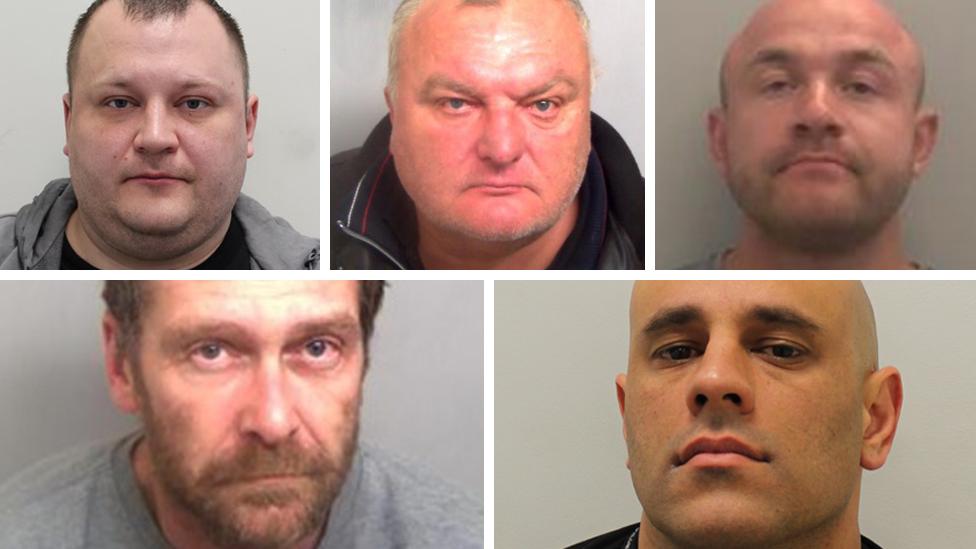
Jusas, top left, pleaded guilty at an earlier hearing. The others, Kosyi, Kuliss, Gulpe and Ivgi were convicted on Wednesday
The beleaguered Svanic was escorted south to the port of Harwich, Essex, where the 69 migrants were handed to Immigration Enforcement officers.
They faced charges of illegal entry which were later dropped as they had not reached UK land at the time the boat was intercepted.
But two men - a convicted murderer and a man who had previously been deported from the UK on drugs offences - were repatriated immediately.
Mr Farrimond added: "The trafficking group in this particular case had no regard for human life.
"It was all about the profit and using the individuals as a cargo to line their own pockets.
"It was a very risky business indeed."
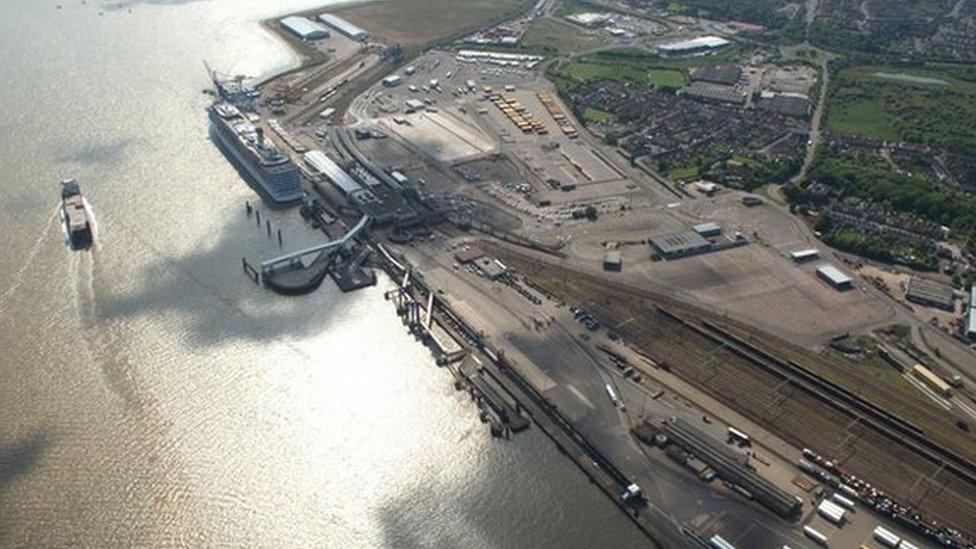
Journey's end: The trawler was escorted to the Port of Harwich in Essex

Find BBC News: East of England on Facebook, external, Instagram, external and Twitter, external. If you have a story suggestion email eastofenglandnews@bbc.co.uk, external
- Published12 November 2021
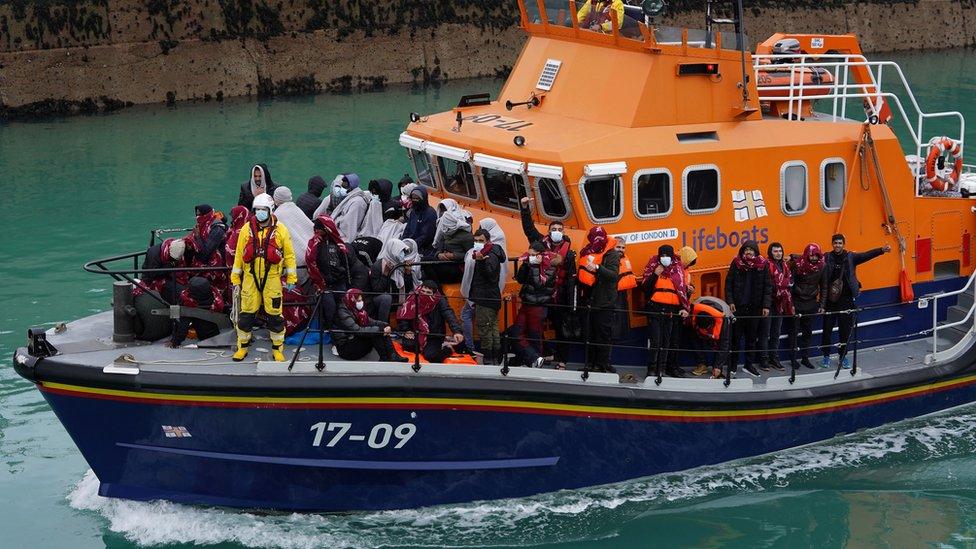
- Published13 October 2021

- Published23 September 2021
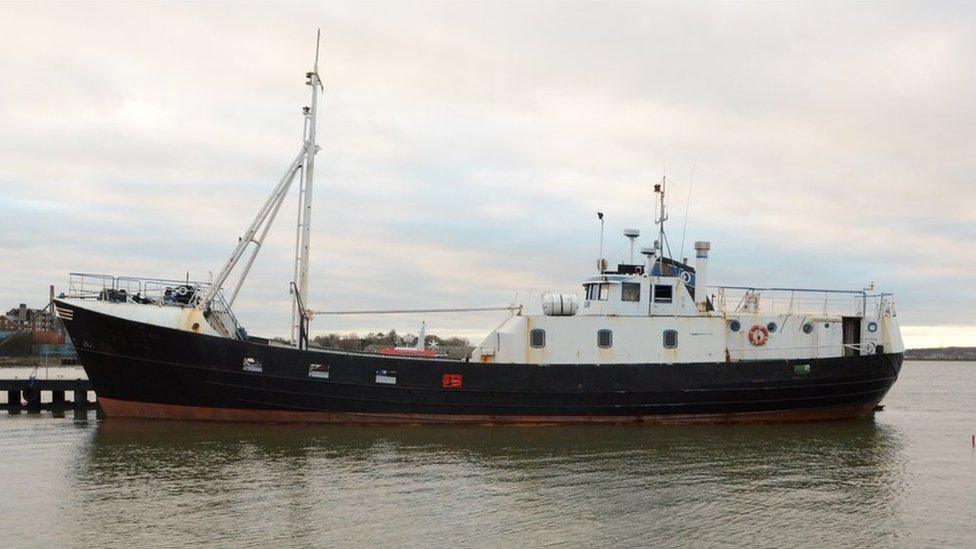
- Published22 January 2021
